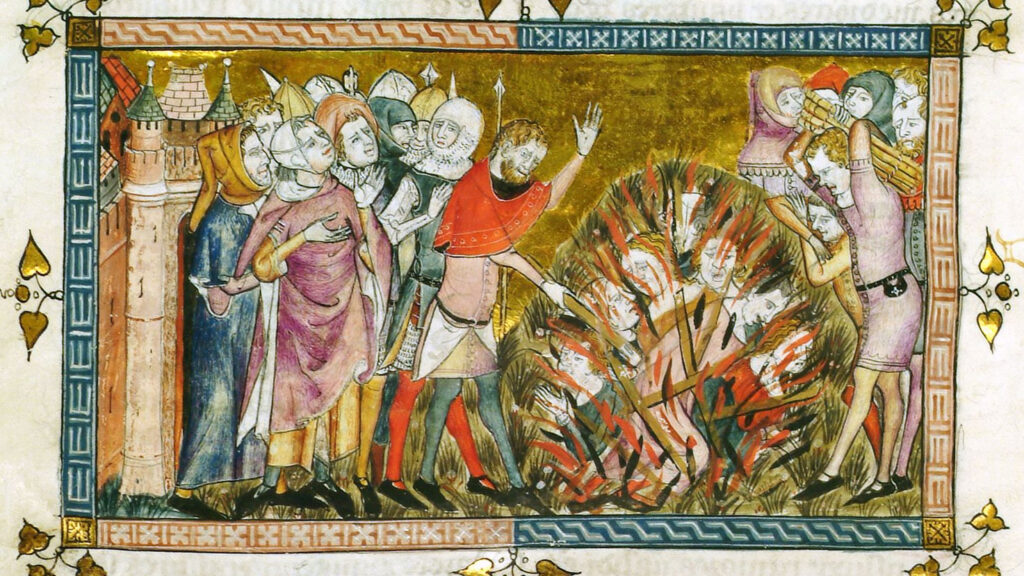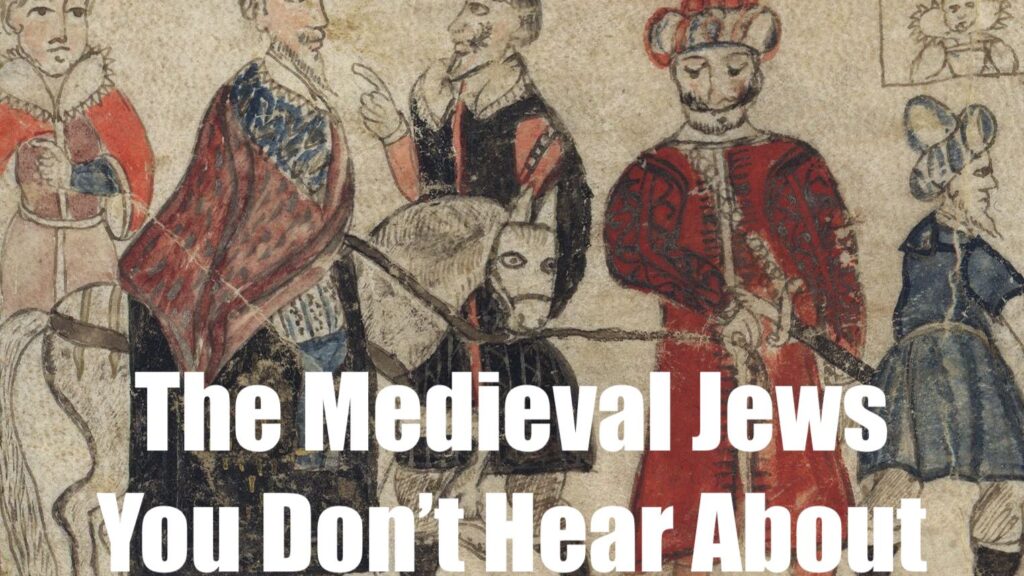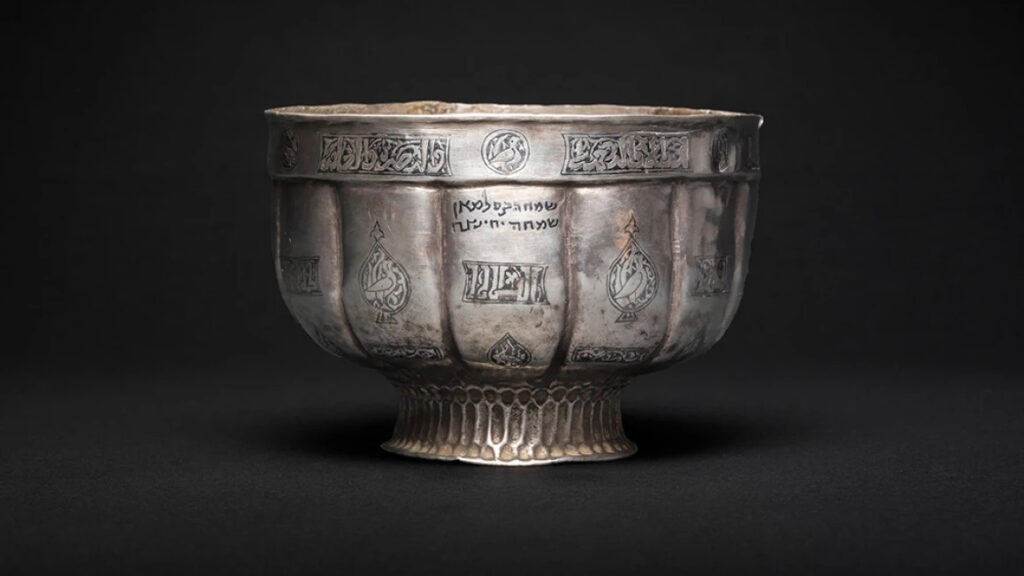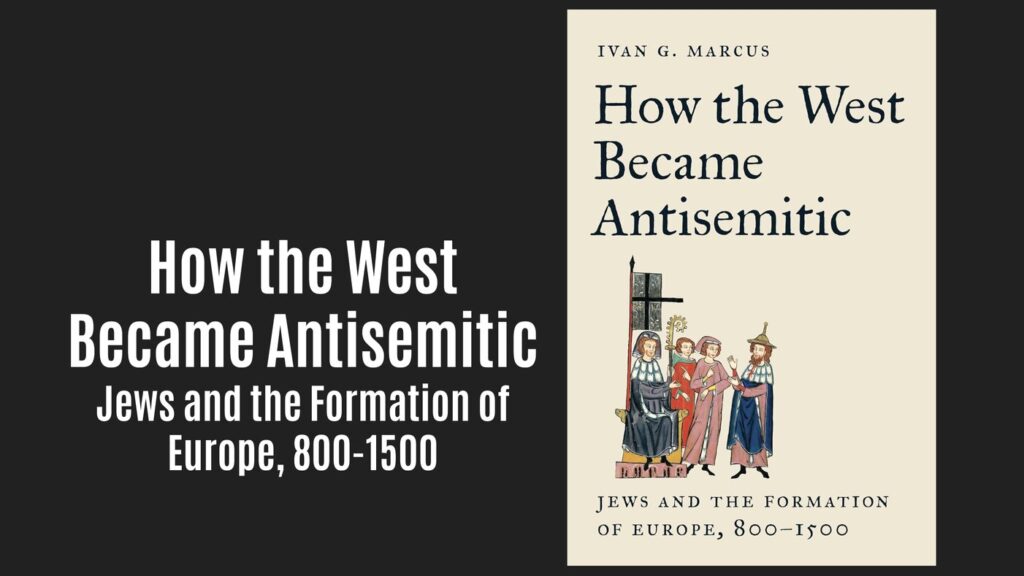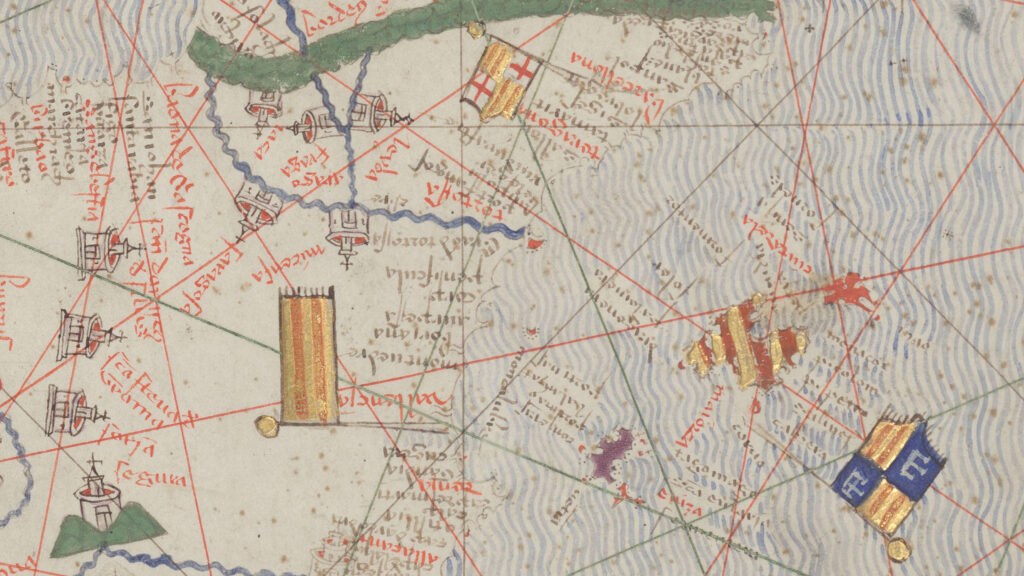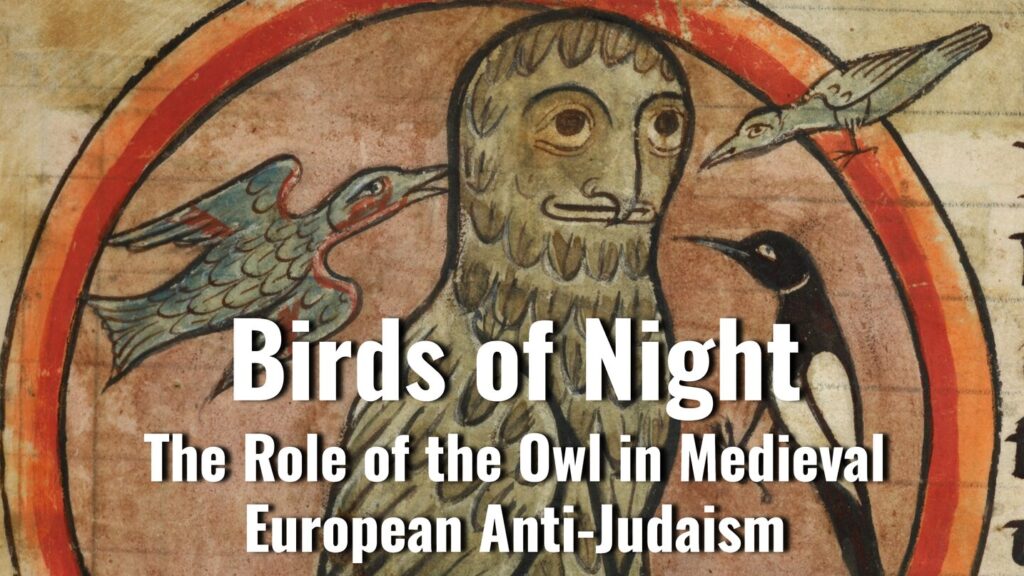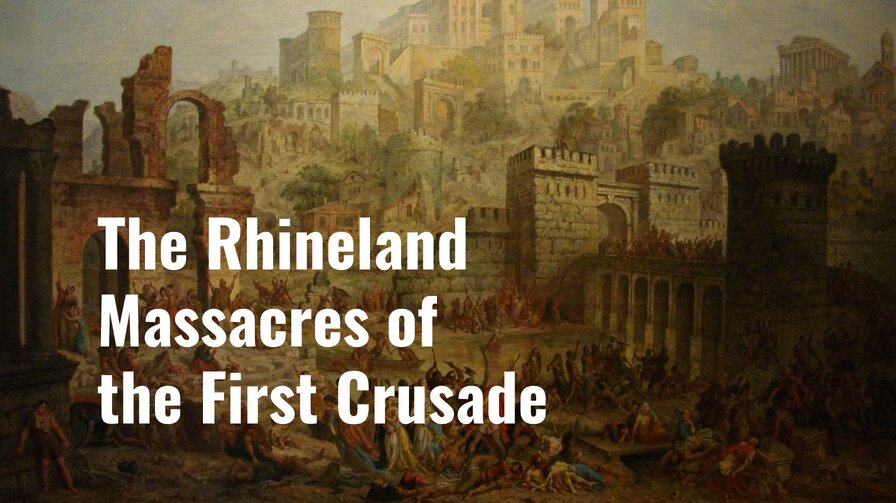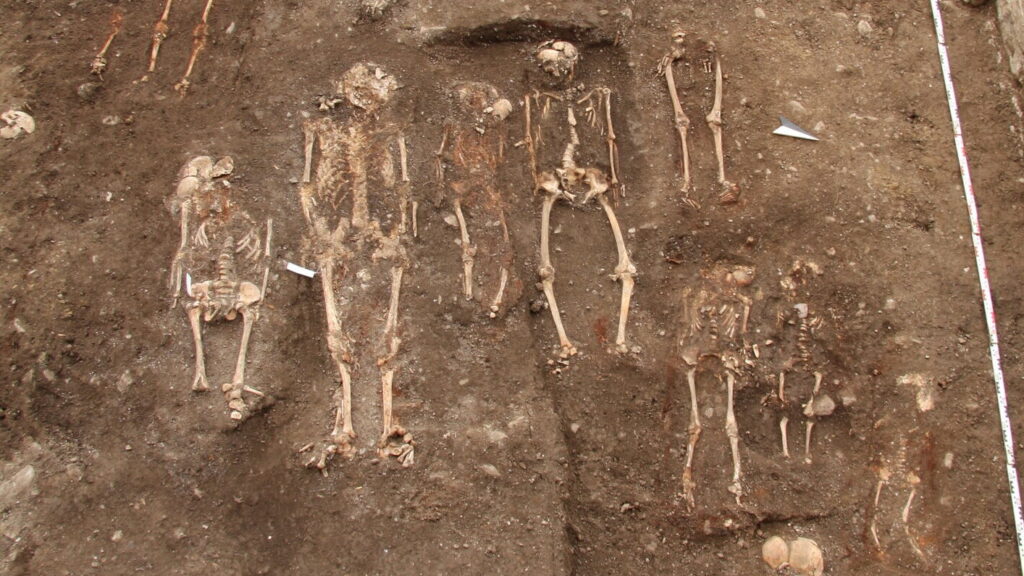Were there Conspiracy Theories in the Middle Ages?
Did conspiracy theories exist in the Middle Ages? Exploring how medieval plots, suspicions, and scapegoating gave rise to early forms of conspiratorial thinking.
More Than Scholars and Victims: The Forgotten Lives of Medieval Jews
Discover the overlooked roles of medieval Jews—not just as scholars and victims, but as warriors, storytellers, and lovers. This article explores Jewish participation in battles, chivalric tales, and everyday life across the Middle Ages.
Medieval Cup Could Fetch $5 Million at Auction
A rare 11th–12th century Kiddush cup from medieval Khorasan—inscribed in Hebrew and Arabic—will be auctioned by Sotheby’s with an estimate of $3–5 million.
New Medieval Books: The Illustrated Cairo Genizah
The Cairo Genizah stands as one of the most significant collections of medieval documents, offering unparalleled insights into the past. This book highlights hundreds of fascinating examples from the Genizah, complemented by images of the original documents.
New Medieval Books: Diary of a Black Jewish Messiah
This book presents a translation of a fascinating and highly unusual 16th-century text: the diary of a self-proclaimed Jewish leader—though he was likely a con artist—who traveled across Europe meeting with rulers as part of a scheme to wage war against the Ottoman Empire. Even after reading this diary, you may still find yourself questioning who this enigmatic figure truly was and what his ultimate goals might have been.
New Medieval Books: How the West Became Antisemitic
Exploring the tense and evolving rivalry between Christians and Jews in medieval Europe, this examination reveals how religious confrontations transformed into a deep-seated anti-Semitic ideology. What began as theological disputes increasingly took on racial overtones, laying the groundwork for a form of hatred that would persist and evolve into the modern era.
From Generation to Generation: Jewish Inheritance Practices and Christian Notarial Culture in the Crown of Aragon, 1250-1391
This paper argues that the vast majority of Jews who drew up notarial wills, donatio inter vivos contracts, and other Latinate documents related to inheritance did not seek to circumvent Jewish law. Instead, they valued a combination of Latin and Hebrew-Aramaic contracts as a means of making their inheritance choices intelligible both within and beyond the Jewish community.
Birds of Night: The Role of the Owl in Medieval European Anti-Judaism
In medieval Europe, the nocturnal owl became a dark symbol intertwined with the prejudices of the time, representing Jews as dwellers in spiritual darkness. This unsettling association played a significant role in the era’s widespread anti-Judaism, influencing both religious beliefs and violent actions.
A Life, a Death, a Legacy: Writing the History of Ritual Murder
The Life and Passion of William of Norwich, written in the twelfth century by Thomas of Monmouth a Benedictine monk, contains the earliest accusation that Jews killed a Christian child for hate of Christians and their beliefs.
New Medieval Books: The Kennicott Bible
Not only do you get a study of this late-medieval Hebrew Bible but it also comes with over 150 pages from the text.
Medieval Jewish Prayer Book on Display at Faith Museum
A unique medieval siddur is now on public display at The Faith Museum in northern England. On loan from Corpus Christi College in Oxford, the manuscript is one of the very few Jewish artifacts from medieval England and contains Arabic handwriting within its pages, providing a unique glimpse into the lives of Jewish people in the Middle Ages.
“Next Year in Jerusalem”: The Medieval Origins of the Jewish Longing for a Homeland
First attested in the Middle Ages, the phrase has become part of not only the Passover liturgy, but also the concluding service for Yom Kippur, and has long testified to the longing of the scattered Jewish people for a homeland where they could be free from persecution.
New Medieval Books: The Standard Language Ideology of the Hebrew and Arabic Grammarians of the ‘Abbasid Period
This open-access book examines the connections between Hebrew and Arabic in the Middle Ages when it comes to language. it offers a look at how people learned from each other even though they came from different backgrounds and religions.
Contracts as Weapons: Notarial Power and Jewish Agency in the Late Medieval Crown of Aragon
Contracts as Weapons: Notarial Power and Jewish Agency in the Late Medieval Crown of Aragon Paper by Sarah Ifft Decker Given at The…
Abraham ibn Ezra: A Medieval Philosopher and Poet’s Words for Today
He left behind a legacy of poetry, humor, original biblical scholarship in Hebrew, works on grammar, scientific oeuvres and more meditational works, all of which are imbued with his philosophy.
The Washington Haggadah and 33 other Medieval Manuscripts digitized by the Library of Congress
The Library of Congress has released some 230 newly digitized manuscripts written in Hebrew and similar languages such as Judeo-Arabic, Judeo-Persian and Yiddish. It includes 34 manuscripts dating between the 11th and 16th centuries.
New Medieval Books: Jewish Life in Medieval Spain
Focusing on mostly the later medieval period, this book examines the Jewish community in Spain, covering a turbulent period that saw much happen within the community as well as in their relations with their Christian and Muslim neighbours.
In Between Two Worlds: Jewish Women and Conversion in Late Medieval Catalonia
Blanca de Banyoles’ life is in many ways emblematic of the experiences of many Jewish women who converted to Christianity following the violence of 1391.
Codex Sassoon sells for $38 million at auction
An 1100-year-old manuscript has sold for $38,126,000 (US), making it the most valuable medieval manuscript to be auctioned. The Codex Sassoon, which contains an almost complete version of the Hebrew Bible, was purchased by Alfred H. Moses and will be donated to the ANU Museum of the Jewish People in Israel.
The Story of Moses at the Mongol Court
The extant paintings prominently feature the life of Moses in a synthesis of stylistic sources, reflecting a unique cosmopolitan union of history and religion.
Hostility Against the Jews in Medieval France
In France, as in other European regions, the medieval era saw changing and contradictory attitudes towards the Jews, who were alternately tolerated and persecuted.
The Rhineland Massacres of the First Crusade
Around the mid-twelfth century, a Jewish chronicler named Solomon bar Simson penned an account of events that had happened 50 years earlier – events that were devastating for his fellow Jewish community in parts of Europe.
Women’s Work in Catalonia with Sarah Ifft Decker
We know that women in the Middle Ages worked and contributed in vital ways to their families and communities, but where do we find the evidence? And what can it tell us? This week on The Medieval Podcast, Danièle speaks with Sarah Ifft Decker about women’s work in medieval Catalonia, how we can trace it, and how it differed from city to city and faith to faith.
The Kidnapping of Baby Bonafilla: Jewish guardianship, conversion, and mixed families in the aftermath of 1391 in Girona
In early 1417, the Jewish guardians of Bonafilla, the daughter of Nacim Roven, kidnapped the young toddler to prevent her conversa mother and stepfather from converting the child
What we learned from a medieval Jewish cemetery in Erfurt
Last month we released a study examining the remains of the medieval Ashkenazi Jewish community in Erfurt, Germany. Our research has given us a better understanding of how this community lived in the Middle Ages.
